Energy
GVSU Initiatives
Jump to...
solar garden
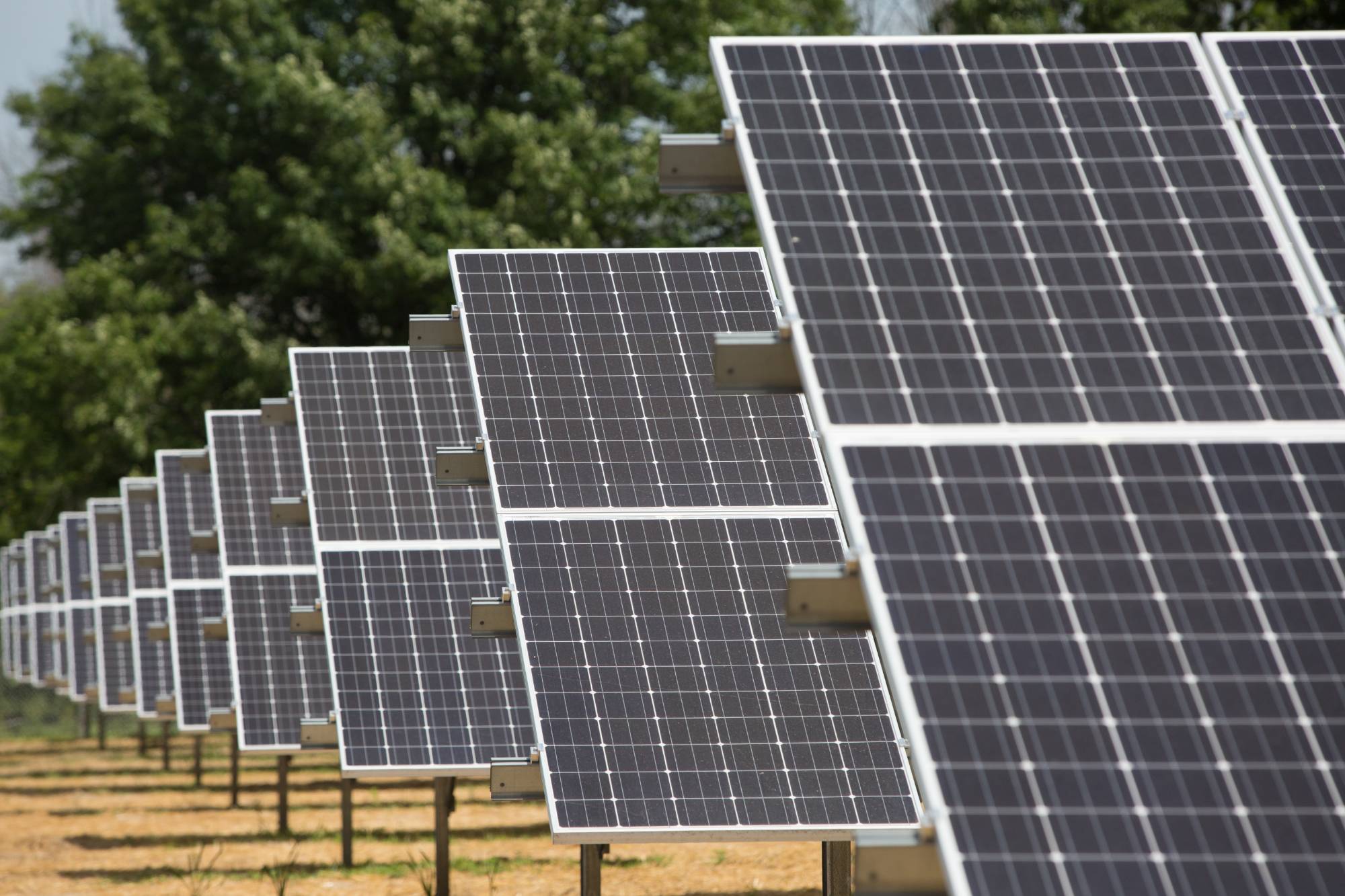
The Michigan Public Service Commission approved a Solar Garden program and Grand Valley State University reached a partnership with Consumers Energy, a local utility company, on October 1, 2015. For this university it was the largest renewable energy venture ever embarked upon. GVSU financed a subscription to the Solar Garden up front and receives a monthly credit on their Consumers Energy electric bill for the next 25 years. GVSU also received additional funds to construct 2 mini solar arrays and for the development of an educational curricula over 6 years.
Consumers Energy built and maintains the 3 megawatt solar garden on approximately 17 acres of university property in Allendale, Michigan. GVSU agreed to subscribe for 500 kW which will generate enough electricity to operate approximately 70 to 80 homes for one year. The solar garden was completed in April 2016.
leed certified buildings
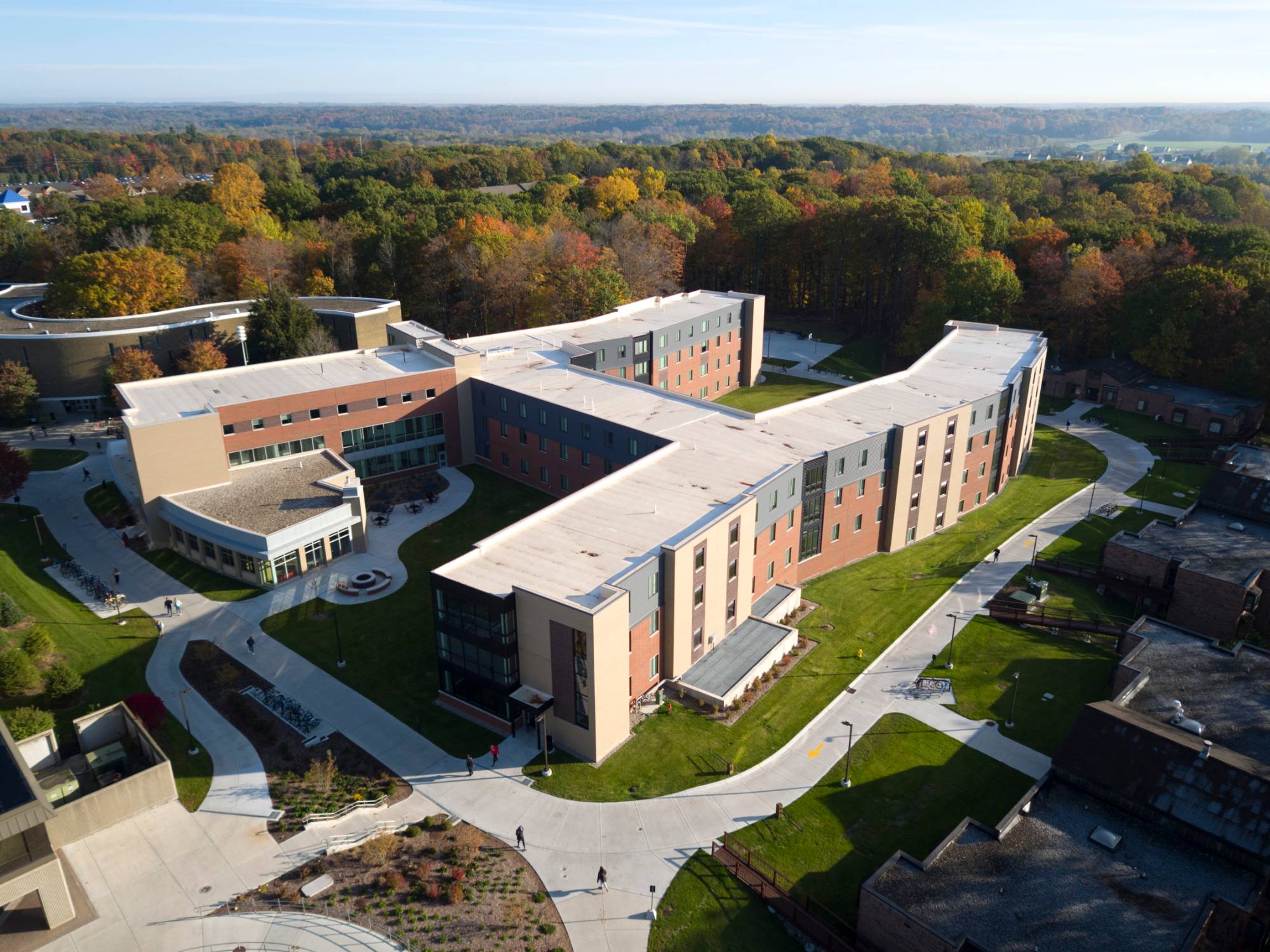
Grand Valley has committed to designing and building LEED (Leadership in Energy and Environmental Design) certified buildings. LEED certified buildings use 30 percent less energy, 40 percent less water, and 75 percent less material than regular buildings. Check out a list of GVSU LEED certified buildings and their ratings.
Learn more about the Mary Idema Pew Library Green Building (LEED) by participating in a Scavenger Hunt.
energy competition
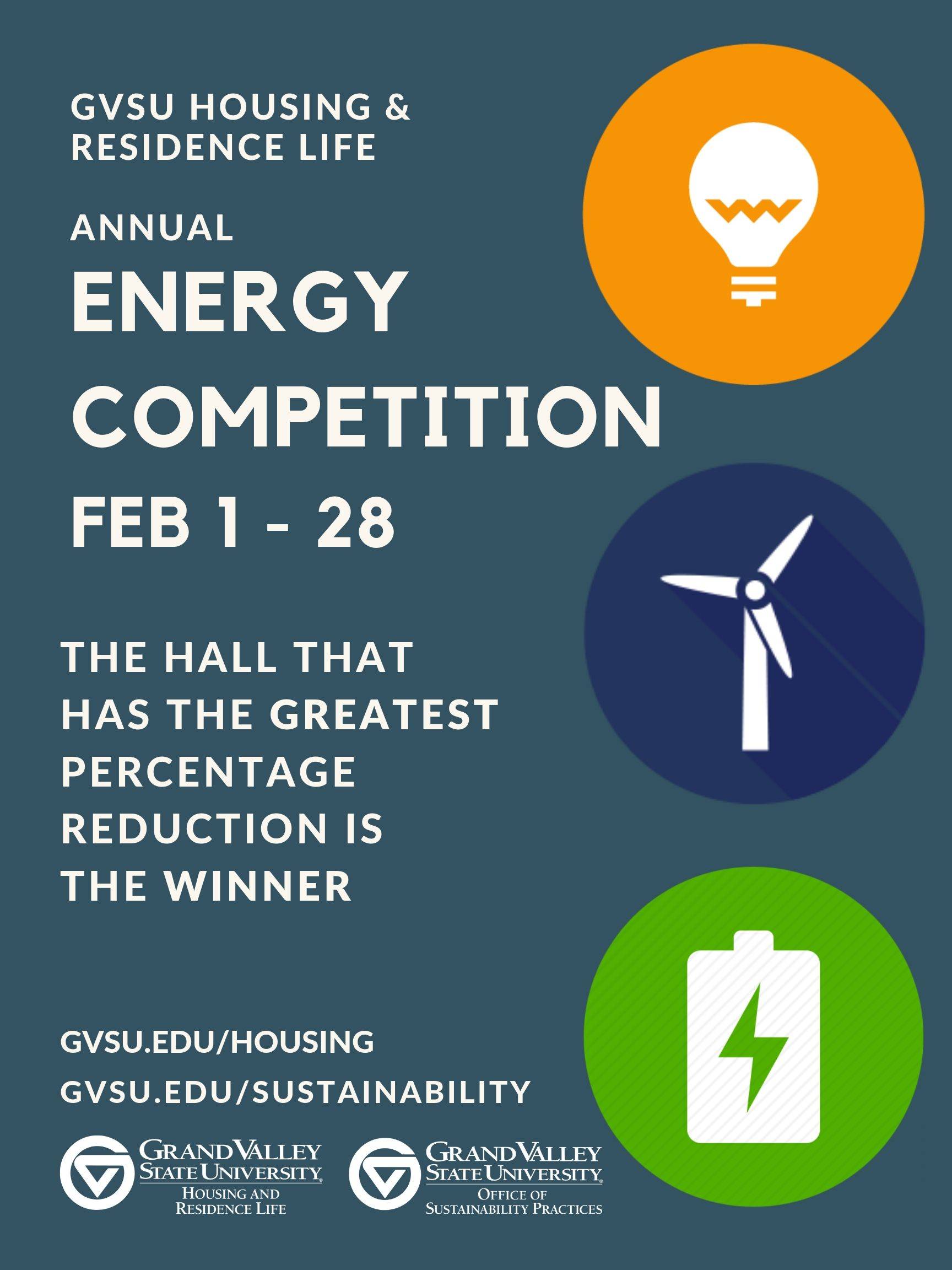
Each year the campus residence halls compete to save the most energy! This competition is part of a broader campaign to encourage behavior change in students.
muskegon innovation hub
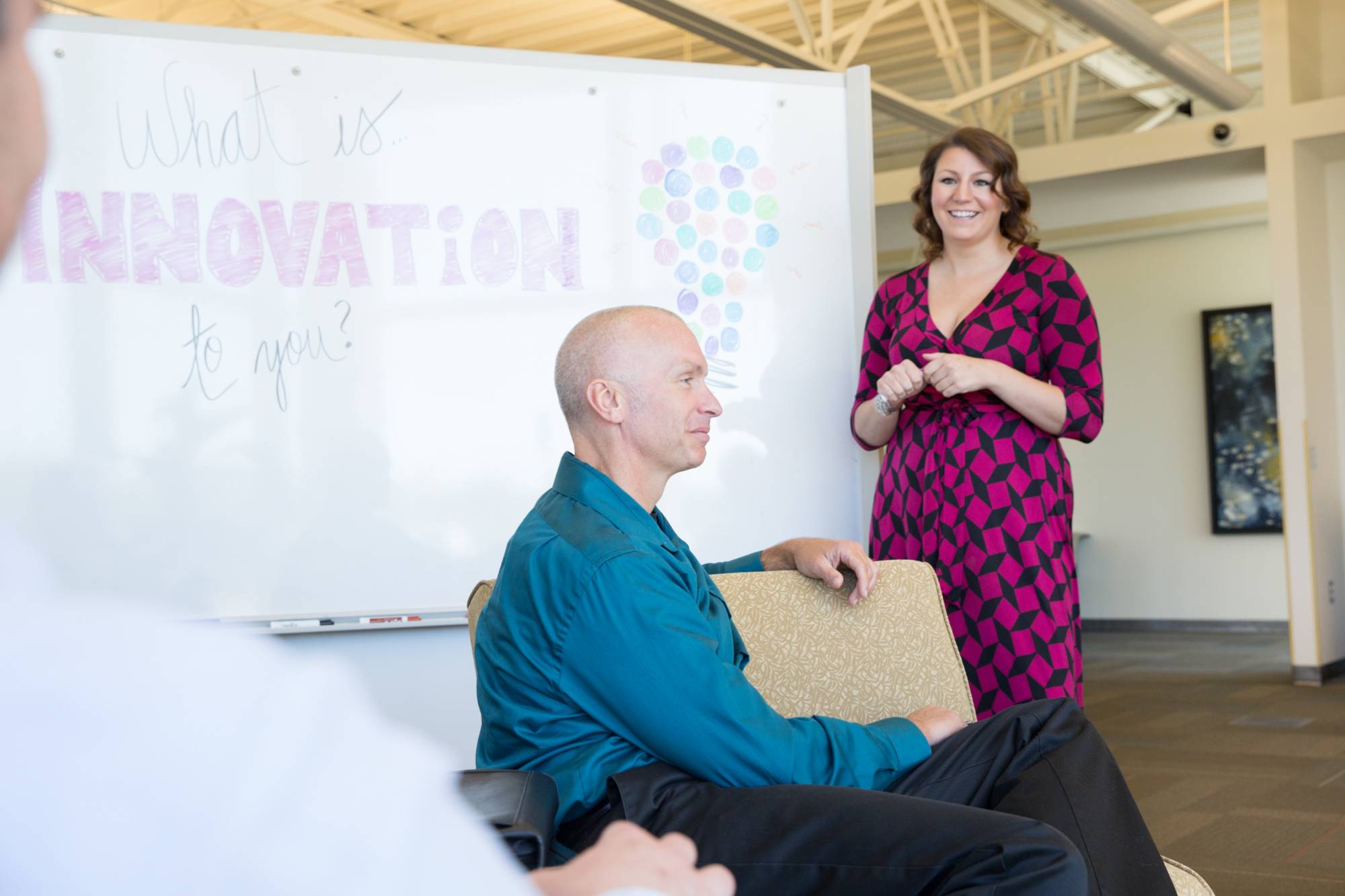
The Muskegon Innovation Hub (the Hub) is a business innovation center that provides coaching, funding, networking, and a synergistic work environment to help businesses and entrepreneurs maximize their growth potential. We are a key partner in the region's innovation ecosystem, supporting startup businesses, entrepreneurs, and corporate innovation teams.
Learn More About The Hub
energy saving projects
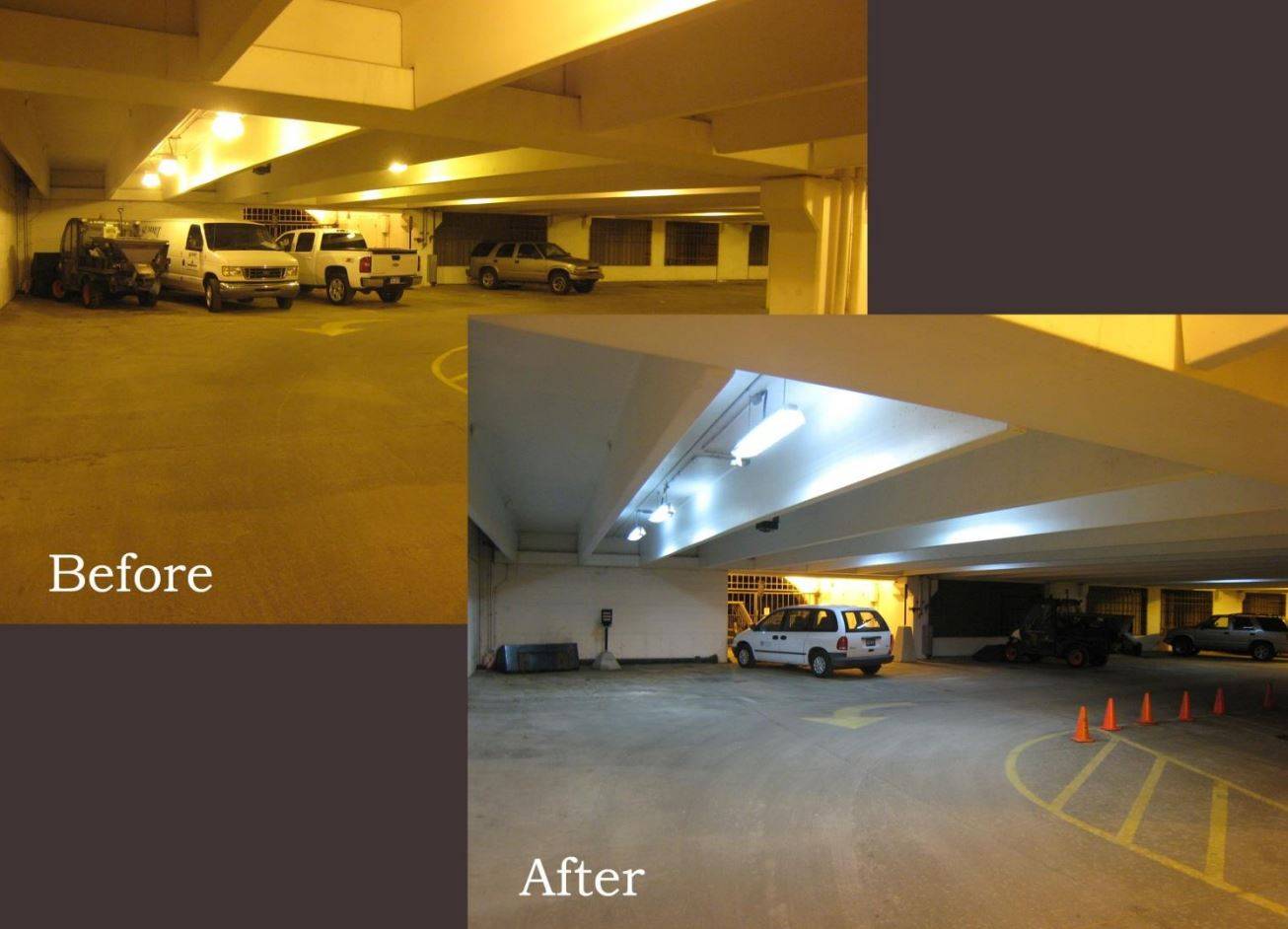
GVSU saves more than $1.1 million per year by monitoring and documenting energy consumption; purchasing Energy Star products; installing more efficient lighting; and using occupancy sensor controls and heating and cooling controls.
renewable energy
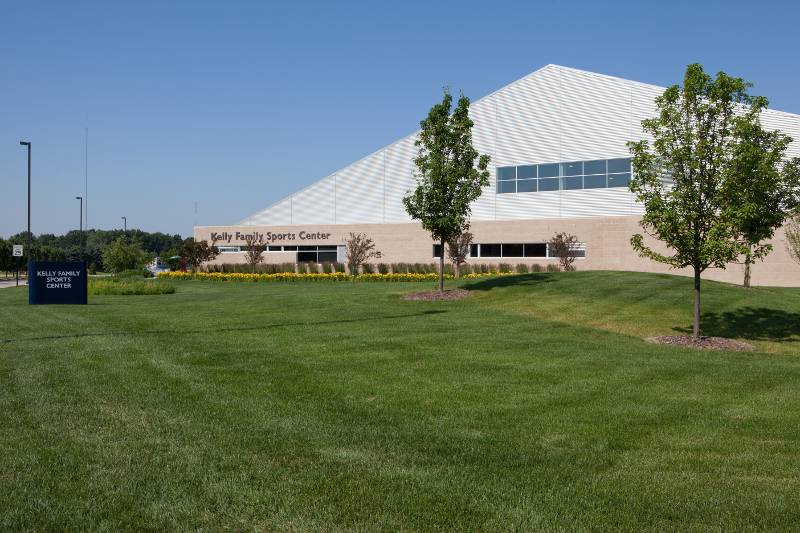
Both the Kelly Family Sports Center and Muskegon Innovation Hub use photovoltaics as a partial energy source, and the Kelly Family Sports Center has geothermal wells that help maintain temperature level.
Energy Saving Tips
Temperature
- Dress for the weather and set your thermostat to the lowest possible comfortable setting. On cold nights, put an extra blanket on the bed and turn down your thermostat even more.
- Don’t leave windows open if the cooling and heating units are operating.
- Setting your thermostat a few degrees lower can save up to 5 percent on heating and cooling costs for each one-degree difference.
- Don’t block the airflow around vents. Keep furniture and other bulky items away from the heating and cooling units so they don’t block and/or absorb the warm (or cool) air that should be coming into the room.
- Open your blinds or curtains during the day on sunny winter days and let the sun shine in.
- Turn off kitchen and bath fans immediately after use.
Electronics
- Turn off lights and all electronics (like computers, televisions, stereos, and video games) when you leave a room.
- Plug electronics into a power strip and turn it off when not in use to save in energy costs. Even when you think these products are off together, their “standby” consumption can be equivalent to that of a 75 or 100 watt light bulb running continuously.
- Avoid parasitic energy loads. Even when turned off, home electronics in “standby” mode use energy to power features like clock displays.
- Laptops use less energy than desktop computers.
- Set your computer to sleep or hibernate mode instead of using a screen saver during periods of inactivity.
Water
- Turn off the water while brushing your teeth.
- Run your dishwasher only when you have a full load.
- Turn off your dishwasher after the wash cycle and let your dishes air- dry.
- Wash full loads of clothes when possible. When smaller loads are
necessary, use less water.
Cooking
- Use the microwave instead of the oven for cooking your meals.
- Keeping the freezer full uses less energy than an empty one. Consider
filling your freezer with gallon containers of water. - Opening the oven door while cooking can cause the temperature to
drop as much as 25 degrees. - Turn off your oven or burners when food is almost ready and let existing heat finish the cooking for you.
- Match your pot size to the burner on your stove. Heat is lost when
small pots are used on large burners.

